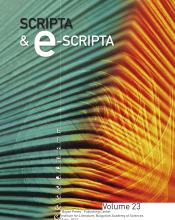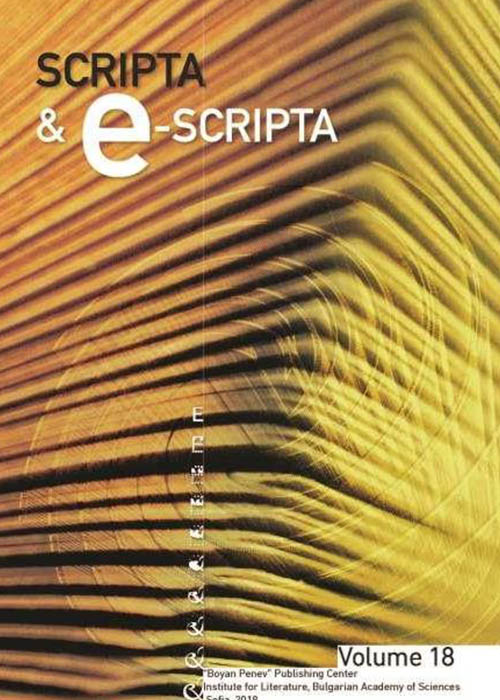Ефективност на генерични модели HTR за историческа кирилица и глаголица: Сравнение на средства
Performance of Generic HTR Models on Historical Cyrillic and Glagolitic: Comparison of Engines

- Author(s): Achim Rabus Walker R. Thompson
- Subject(s): Language studies // Language and Literature Studies // Theoretical Linguistics // Applied Linguistics // Historical Linguistics // Computational linguistics // South Slavic Languages // Philology // Translation Studies //
-
Published by: Institute for Literature BAS

- Print ISSN: 1312-238X
- Summary/Abstract:
The present study offers a comparative evaluation of the performance of different AI-based digital tools for handwritten text recognition (HTR) on historical manuscripts and prints. The focus is on generic models capable of transcribing a range of texts in a similar script. The training dataset for these comprises Old Cyrillic ustav and poluustav manuscripts, on the one hand, and early Glagolitic printed books, on the other. We give an overview of the performance statistics for the HTR platforms Transkribus and eScriptorium as well as for the command-line tool Calamari. In each case, we additionally offer a close, qualitative analysis of select examples in order to convey a sense of the models’ real-world performance. In this way, our study supplies comparative data on the respective capabilities of these technologies that ought to be of interest to scholars working with them in digital humanities projects.
Journal: Scripta & e-Scripta vol. 23, 2023
-
Page Range: 11-34
No. of Pages: 24
Language: English - LINK CEEOL: https://www.ceeol.com/search/article-detail?id=1196211
-
Achim RabusGermanyDepartment of Slavic Linguistics, University of Freiburg, GermanyDescription
Prof. Dr. Achim Rabus is the current Head of the Department of Slavonic Studies at the University of Freiburg, Germany. Rabus defended his PhD thesis on the language of East Slavic spiritual songs in 2008 and his Habilitationsschrift on Slavic language contact in 2014. Since 2009, Rabus has been a member of the Special Commission on the Computer- Supported Processing of Mediæval Slavonic Manuscripts and Early Printed Books to the International Committee of Slavists, and since 2018, the President of the Commission. His current research focuses on Slavic social dialectology, Handwritten Text Recognition, corpus and (digital) historical linguistics.
Walker R. ThompsonSlavic Institute, Heidelberg UniversityDescriptionWalker Thompson read Russian and German as an undergraduate at Magdalen College, Oxford, going on to complete his Master’s in Syriac Studies at Wolfson College in 2019. From 2019–2020, he was an Academic Assistant at the Slavic Institute of Heidelberg University. Since October 2020, he has been continuing his doctoral research on Epifanij Slavineckij’s lexicographical works as a DAAD-GSSP scholar at the Heidelberg Graduate School for the Humanities and Social Sciences (HGGS). His teaching and research interests span a diverse range of topics including digital humanities, graphematics, language contact, early modern lexicography, the history of Church Slavonic, and Eastern Orthodox liturgics.
-
SUBJECT: Language studies // Language and Literature Studies // Theoretical Linguistics // Applied Linguistics // Historical Linguistics // Computational linguistics // South Slavic Languages // Philology // Translation Studies //KEYWORDS: handwritten text recognition // TRANSKRIBUS // MACHINE LEARNING // Cyrillic palaeography // Glagolitic printings //
-